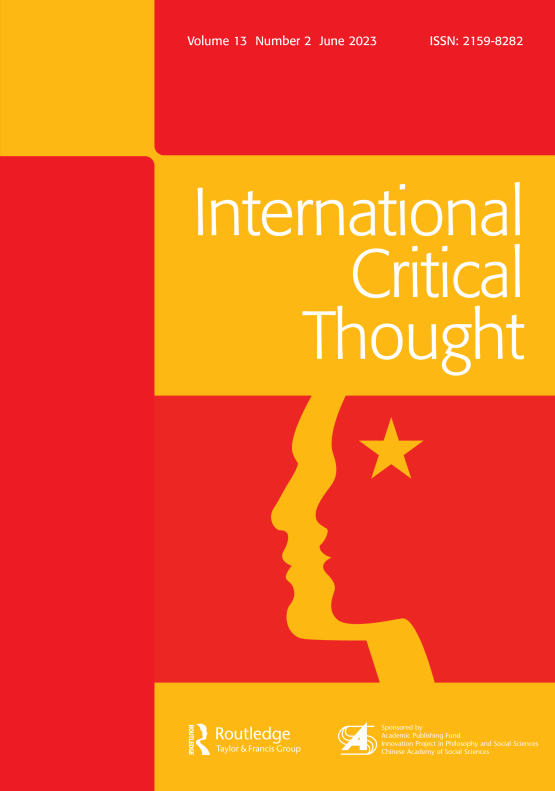Submit a Manuscript to the Journal
International Critical Thought
For a Special Issue on
Resurgent Africa: A Socialist Past, a Multipolar Present
Manuscript deadline
30 June 2024

Special Issue Editor(s)
Adam Mayer,
American University of Iraq Baghdad, Széchenyi István University Hungary
[email protected]
Resurgent Africa: A Socialist Past, a Multipolar Present
Africa’s national liberation heroes and Marxist thinkers from Kwame Nkrumah through Amilcar Cabral and Thomas Sankara, to today’s Biodun Jeyifo, Biko Agozino and Olufemi Taiwo, have identified Africa’s predicament as one of neocolonialism: imperialist exploitation and subjugation to western interests.
Political experiments in Africa during the Cold War had built on the revolutionary experiences of China (in Mauritania, Ghana, Zambia, Tanzania, Zimbabwe, Uganda, Guinée, Guinea-Bissau, Mali, Sudan, Somalia, Benin), a faltering USSR that was yet very active on the continent (Ethiopia, Sudan, Ghana, the ANC in South Africa, Angola, Mozambique, Congo Brazzaville, Madagascar), and even the DPRK (Benin, Uganda) or East Germany (Mozambique, Zanzibar).
The openning-up of the 1990s in China, as well as the collapse of the USSR in 1991 ushered in the world’s „unipolar moment”, which also affects the African development (1990-2017). For three decades, the Washington consensus and its neoliberalism destroyed Africa’s potential, deindustrialized the continent, and with its NGO conditionality and donor relationships, looted Africa for western corporate benefit while it perpetuated ineffectual aid systems. The 1990s had brought genocidal wars and the near-disappearance of African statehood, while raw materials found their way to the global North at giveaway prices.
In the mid-2000s, a newly confident China reappeared in Africa as a relevant actor especially in the economic sphere. In the mid-2010s, Russia did the same with its security companies. China’s win-win relationships with African economies, and Russia’s alternative security packages for African states have successfully altered the basic geopolitical balance in the region. Together with Africa’s own initiatives, the three have undoubtedly ended Africa’s unipolar moment in the late 2010s, and brought multipolarity to Africa.
In West Africa, France is now suddenly unable to prevent patriotic coups that challenged its exploitative practices (Guinée, Mali, Burkina Faso and Niger in recent years). Sub-imperialist governments are still strong on the continent but today, for the first time in thirty years, there are real alternatives in front of Africa’s toiling masses and their countries’ politicians. Africa is regaining its agency.
ICT’s special issue hereby calls for papers on the radical history and 21st century political economy, emancipatory movements (including of and by women and also workers and the peasantry), climate issues, diplomatic issues, and the new constellation of common security and common prosperity in the era of multipolarity in Africa, also the impact on and relevance to African development of China’s six initiatives: Building the community with shared future for humanity, the Belt and Road Initiative, Global Development Initiative, Global Security Initiative, Global Civilization Initiative and Global AI Governance Initiative.
Looking to Publish your Research?
Find out how to publish your research open access with Taylor & Francis Group.
Choose open accessSubmission Instructions
We welcome papers around 8000 to 12000 words in length.
All papers submitted for the special issue will be peer-reviewed anonymously. The papers accepted will be published online respectively, then gathered as a special issue.
Please select "Special issue: Resurgent Africa: A Socialist Past, a Multipolar Present" when submitting your paper to ScholarOne.
For inquiries and submission of manuscripts, please contact the Guest Editor Adam Mayer ([email protected]) or Journal editor ([email protected])